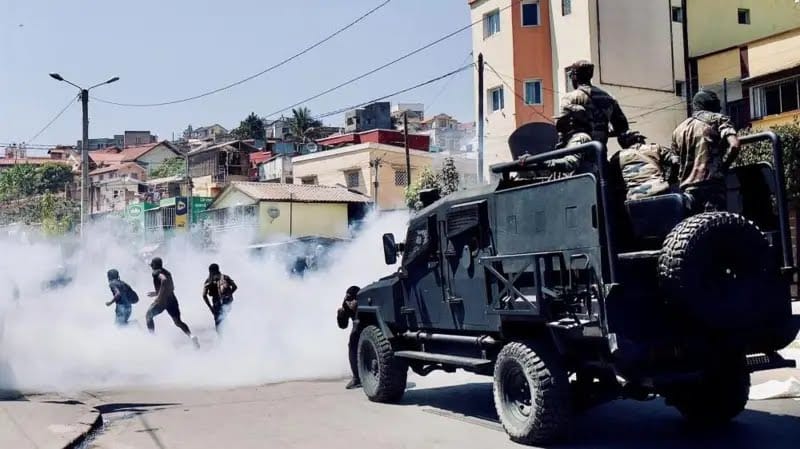Madagascar’s President Andry Rajoelina has announced the dissolution of his government following several days of large-scale demonstrations led by young citizens frustrated by years of water and electricity shortages.
In a televised address on Monday, Rajoelina acknowledged public anger and apologized for government shortcomings, stating that he had “terminated the functions of the prime minister and the cabinet” and that a new government would be formed within days. Current ministers will continue in an interim capacity until replacements are appointed.
“We hear the anger, we understand the sadness caused by daily hardships. It is our duty to act,” the president said during his address.
‘Gen Z’ Movement Demands Change
The protests — dubbed the “Gen Z movement” — began in the capital Antananarivo last Thursday and quickly spread to at least eight cities. Young people have rallied under the slogan “We want to live, not survive,” highlighting long-standing frustrations with power blackouts, water cuts, and economic stagnation.
Thousands have joined the demonstrations across the country, making them one of the largest youth-led mobilizations in Madagascar in recent decades. Protesters are demanding not just better services but deeper political change, including the resignation of senior officials.
Deadly Crackdown Draws International Concern
According to the United Nations, at least 22 people have died and more than 100 have been injured in the unrest, with reports of excessive force by security agencies. UN human rights chief Volker Türk condemned the response, urging authorities to avoid disproportionate violence and release those detained.
The government has rejected the UN’s casualty figures, claiming they are based on “rumours and misinformation.” A dusk-to-dawn curfew has been imposed in the capital, and police have used tear gas and rubber bullets to disperse crowds.
Political Shockwave
Last week, Rajoelina dismissed the energy minister over power shortages, but protesters viewed the move as inadequate. On Monday, they returned to the streets in even larger numbers, prompting the president to dissolve his government.
The president also signaled an intention to open dialogue with young people to address their grievances. Analysts say the demonstrations represent the most serious political challenge to Rajoelina since his re-election in 2023.
Madagascar has experienced multiple political uprisings since independence in 1960, including the 2009 protests that brought Rajoelina to power. Observers say the current crisis could reshape the country’s political landscape if the youth movement maintains momentum.



